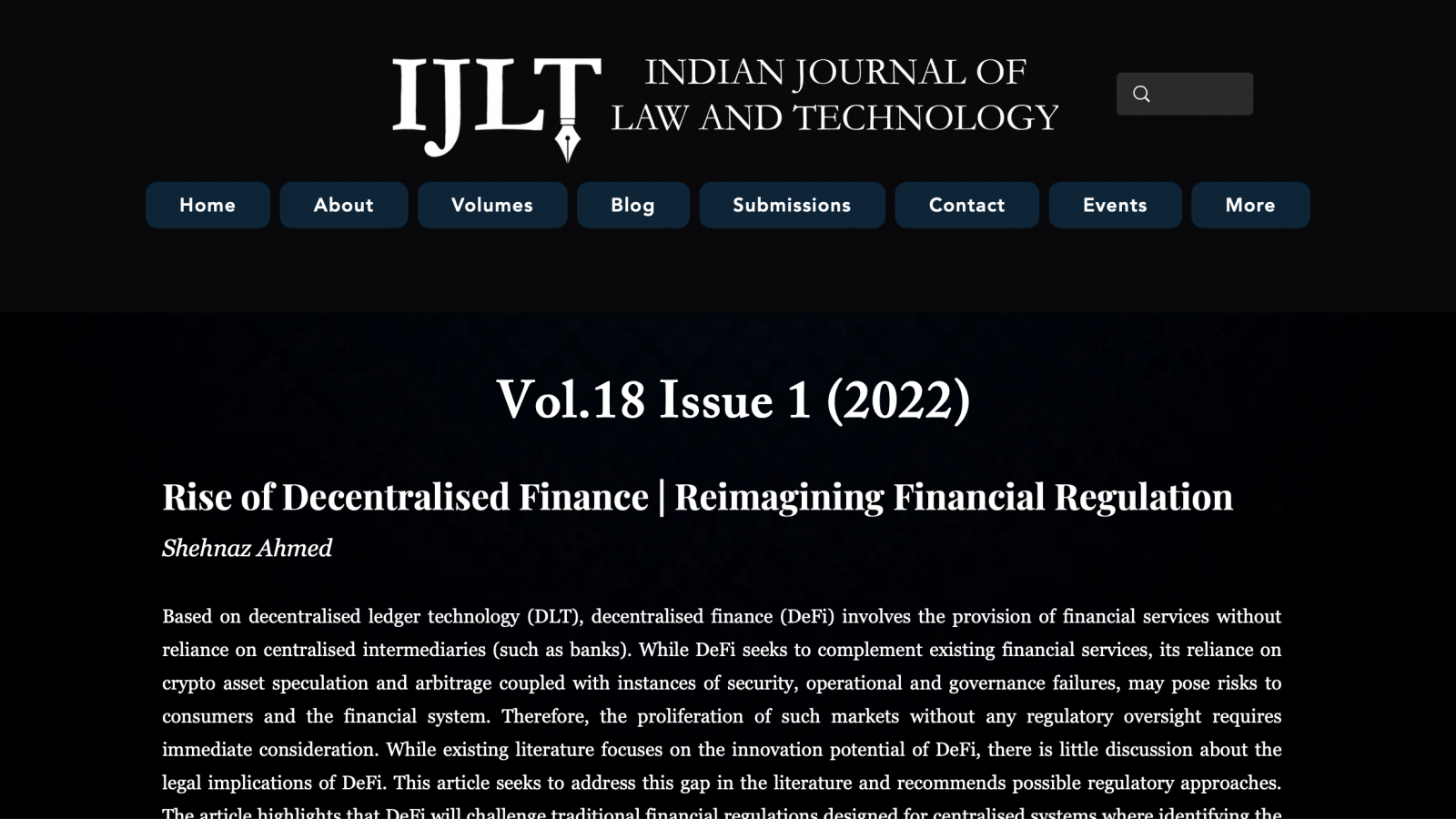
Draft Framework for Recognition of a Self Regulatory Organisation for Payment System Operators – Vidhi’s Submission to RBI
Summary of Vidhi's comments & recommendations on RBI’s Draft Framework
Introduction
On 18 August 2020, the Reserve Bank of India (“RBI”) released a draft framework (“Draft Framework”) for recognition of a self-regulatory organisation (“SRO”) for payment system operators (“PSOs”). The Draft Framework proposes to recognise an SRO which will be a not for profit company that will be responsible for “setting and enforcing rules” for PSOs. For the purposes of this framework, a PSO has been defined to include “system participant” and “system provider” as defined under the Payment and Settlement Systems Act, 2007 (“PSS Act”), the principal legislation for payment systems in India.
What is the role of self-regulatory organisations?
Traditionally, payment system regulators, which is mostly the central banks, have focused on systemic stability while regulating payment systems. However, technological disruption in the payments ecosystem has led to the emergence of new business models and players. Traditionally dominated by banks, the payments industry has been witnessing the gradual entry of non-banks. Therefore, other regulatory objectives relating to promotion of competition, innovation, and protecting and maximising consumer welfare have also assumed significance for regulators.
To realise such policy objectives, regulators may consider different regulatory designs ranging from pure command and control regulation (or government-imposed regulation) to pure self-regulatory structure or a model of co-regulation which is a hybrid between command and control and self-regulation models. Co-regulation encompasses initiatives in which the government and industry share responsibility for drafting and enforcing regulatory standards. India has so far witnessed a pure command and control framework for payment systems, with the PSS Act empowering RBI to regulate the payments industry. The SRO model aspires to be dynamic and adaptable to markets, while at the same time being subject to regulatory oversight in areas of fundamental importance.
Given the fast-evolving nature of the payments industry, many jurisdictions (such as Australia, Canada, Singapore and South Africa) closely work with industry associations while developing standards for the payments industry. However, the structure, scope and mandate of these associations may vary with jurisdictions.
What are the challenges of an SRO model of governance?
First, is the threat (potential or perceived) of conflict of interest that could arise if the industry participants that operate payment systems are also responsible for regulating it.
Second, if incentives are not aligned properly, SRO designed standards may prioritise industry interests at the cost of systemic stability and consumer welfare.
Third, the balance between regulatory oversight and independence is also tricky.
Fourth, such a model may also give rise to anti-competitive concerns. For instance, some payment systems may exhibit monopolistic trends. Coupled with network characteristics, such payment systems and their operators may enjoy a certain degree of market power, which may create potential or perceived risk of influencing the SRO.
Finally, from a legal perspective and specifically in the context of an SRO for PSOs which are currently regulated by RBI, it is important to ensure that the mandate of the SRO under the SRO framework does not overlap with RBI’s power under the PSS Act as the same may be viewed as delegation of essential functions which is impermissible without an express authorisation from the parent statute.
Summary of our comments & recommendations on RBI’s Draft Framework
- Clarity of Objectives and Guiding Principles: Having clearly defined objectives and guiding principles may be useful in shaping the good governance of an SRO while allowing it flexibility to discharge its functions. Therefore, the final framework should both (a) clearly outline the objectives of the SRO framework; and (b) delineate certain good governance principles that will guide an SRO in the discharge of its functions under the framework.
- Legal Sanctity: In order to confer legal sanctity, the final framework should mention the statutory provisions relied on by the RBI to issue the framework.
- Eligibility of SRO: The Draft Framework does not elucidate the fit and proper criteria that Board of an SRO must meet in order to be recognised as such. Therefore, the RBI may consider specifying the capital / net worth requirements as one of the eligibility criteria; and detail fit and proper criteria for the management and board to directors to provide clarity to prospective applicants.
- Membership of SRO: The Draft Framework lacks clarity on the number of SROs it seeks to authorise, the capacity of RBI’s membership as a system participant or a system operator, as well as whether entities that do not fall within the definitions of system participant and system provider may become members of the SRO. These points may be clarified in the final framework.
- Scope of Activities: In designing the mandate of the SRO, due consideration must be given to ensure that such mandate does not overlap with regulatory mandate of RBI under the PSS Act, to ensure that there is no duplication of activity between the SRO and the RBI. Therefore, the final framework should clearly outline the scope of activities of the SRO.
- Recognition of the SRO: The Draft Framework does not elucidate the period of validity for recognition granted to an SRO and does not specify the grounds on which the RBI’s recognition of an SRO may be withdrawn. These issues must be clarified in the final framework.
- Board of Directors / Governance Structure: The governance of an SRO must include a combination of independent members and industry representatives. Therefore, independent directors may be introduced within the governance framework. The final framework must also clarify which important positions in the SRO are subject to the RBI’s clearance alongside clarifying the fit and proper criteria for its management and board as well as the role of the board of directors and chairperson.
- RBI Oversight: The Draft Framework seeks to establish an oversight framework through several measures such as imposing an obligation on the SRO to provide any information to the RBI, investigate any matter referred to it by the RBI, etc. In conferring such powers, adequate care must be taken to ensure that essential functions conferred on RBI under the PSS Act should not be viewed as delegated to the SRO, as the same is impermissible.




